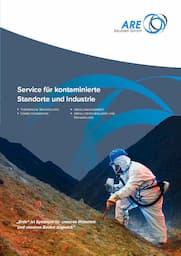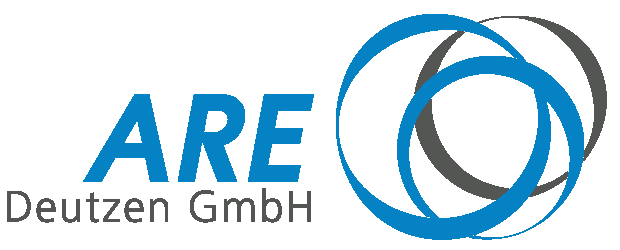Thermal treatment
Following mechanical pretreatment and, if necessary, preparation, the soil, building rubble and other types of waste are placed in a rotary kiln at 250 – 560 °C for thermal treatment. Thermal desorption takes place in a rotary kiln in the absence of oxygen. Contaminants are destroyed or converted into gas at a treatment temperature of 250 – 560 °C and with a dwell of approx. 20 min.
Equipped with online monitoring, our multi-stage waste gas purification system adheres to the thresholds set out in Section 17 BImSchV by means of dedusting, thermal post-combustion, a washing stage and fixed-bed adsorption.
The first process stages involve rough gravitative dedusting in a cyclone (which also acts as a spark arrestor), as well as fine dedusting in a downstream tube separator. The smoke gases produced during the thermal process are fed into a post-combustion stage. Contaminants remaining in the gas flow are destroyed there at > 860°C.
The subsequent smoke gas washing process removes acidic gases and neutralises them, while also separating fine dust and volatile metals. De novo synthesis of the contaminants is prevented by rapid cooling of the smoke gases.
The smoke gas then passes through an activated carbon filter (police filter) to separate mercury, before being released into the atmosphere through the chimney.
Based on its stored volumes of butane gas (liquid gas storage), ARE Deutzen GmbH is assigned to the lower class of the Major Accident Ordinance (StöV). Butane gas is used to fuel the kiln. The last cyclic official audit was performed by the State Office of the Environment, Agriculture and Geology (LfULG), provincial headquarters for Saxony, on 03/08/2017 (www.umwelt.sachsen.de/umwelt/luft/43039.htm). In the event of a major accident, the Department of Fire Rescue and Civil Protection at the District Administration of Leipzig informs the general public.
Downloads

ARE DEUTZEN IMAGE FOLDER
Filesize: 1 MB
